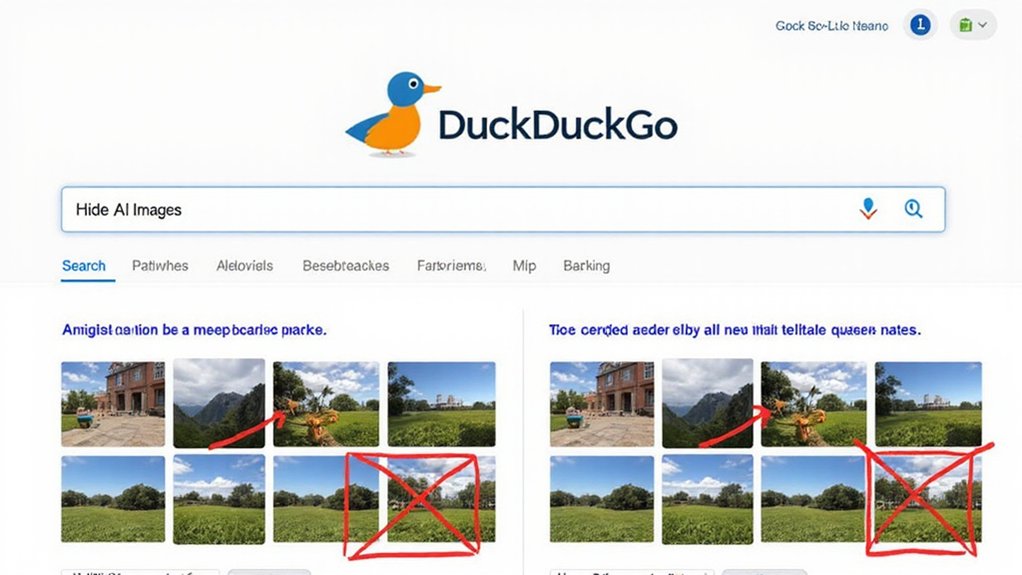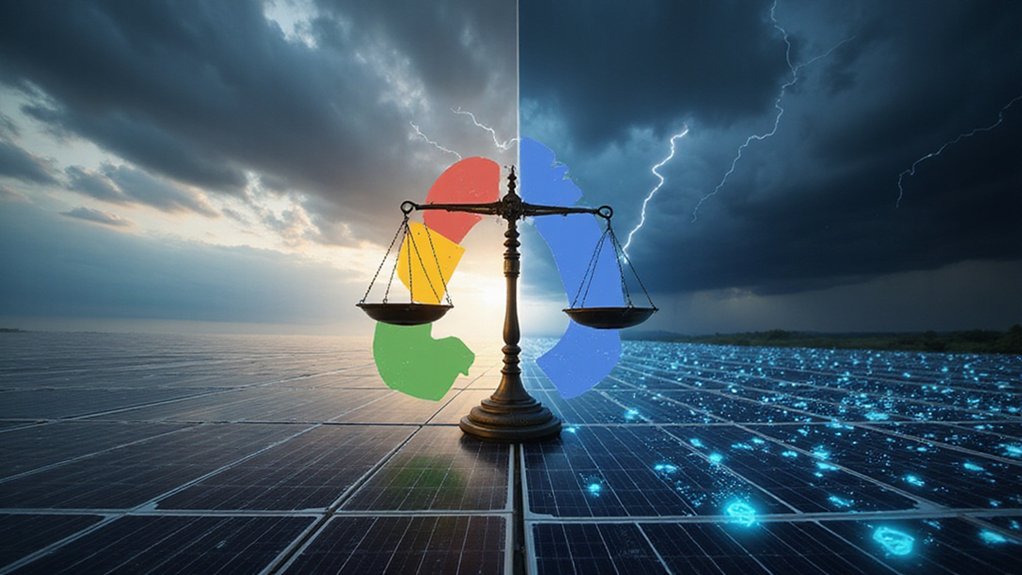Breaking from the pack, DuckDuckGo has released a new AI image filter that lets users banish computer-generated pictures from their search results. Finally. The feature responds to growing complaints about “AI slop” contaminating search integrity—you know, all those perfect-but-not-quite-right images clogging up your results.
The filter is dead simple to use. Users toggle between “show” or “hide” AI images via a dropdown menu in the Images tab. No PhD required. It’s part of DuckDuckGo’s whole privacy-first, user-choice schtick that’s been their calling card for years. The filter can also be easily enabled in settings for persistent use across searches.
And honestly? It’s about time someone did something about the flood of fake visuals online.
Under the hood, the system uses manually curated, open-source blocklists like those from uBlockOrigin. Not fancy AI detection—just good old-fashioned blocklists targeting known AI content hosts. Will it catch everything? Nope. But it’ll greatly reduce the synthetic junk in your results.
The feature wasn’t built in a vacuum. Crypto folks and information junkies were practically begging for a way to filter out AI-generated nonsense. When Reddit users started complaining, DuckDuckGo actually listened. Imagine that.
Let’s be real—the filter has limitations. It can’t magically identify every AI image ever created. It blocks domains, not individual images. And blocklists take time to update. But it’s a start.
For researchers, journalists, and anyone else who needs actual human-created content, this is huge. The internet’s becoming a trash fire of fake images, and this at least gives users a fighting chance at finding authentic visuals.
Control rests entirely with users. Don’t care about AI content? Keep it on. Hate synthetic images with a burning passion? Switch it off permanently in settings. Your call. The filter aligns with DuckDuckGo’s commitment to offering private AI technologies that remain useful without compromising user privacy.
With AI development projected to triple CO2 emissions from data centers to 2.5 billion tonnes, tools that help users be selective about AI content may indirectly contribute to sustainability efforts.
Will other search engines follow suit? They should. But DuckDuckGo got there first—proving that sometimes the underdogs move faster when users demand better.
References
- https://www.ainvest.com/news/duckduckgo-introduces-ai-image-filter-authentic-search-results-2507/
- https://www.androbranch.in/post/duckduckgo-rolls-out-new-ai-image-filter-for-smarter-and-more-transparent-search-experience
- https://www.engadget.com/ai/duckduckgo-now-allows-you-to-filter-out-ai-images-in-search-results-144326213.html
- https://www.lowyat.net/2025/359662/duckduckgo-hide-ai-generated-images-from-search/
- https://www.ghacks.net/2025/07/17/duckduckgo-now-lets-you-hide-ai-generated-images-from-search-results/









